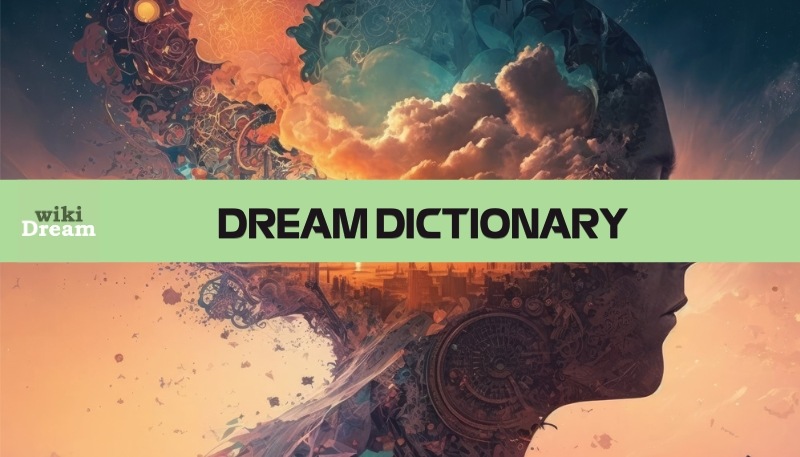Dream Dictionary Encyclopedia: Where scientific research meets traditional symbolic
Dreams have fascinated humans for millennia, serving as mysterious windows into our subconscious minds. A dream dictionary acts as a crucial tool for decoding these nocturnal messages, though its role extends far beyond simple symbol interpretation.
A – B – C – D – E – F – G – H – I – J – K – L – M – N – O – P – Q – R – S – T – U – V – W – X – Y – Z
A dream dictionary serves as a comprehensive tool for interpreting dream symbols while accounting for personal experiences and cultural contexts. Modern research shows that dream content largely connects to real-life experiences, suggesting that effective dream interpretation requires both universal symbolic understanding and individual context consideration.
The Science Behind Dream Interpretation

Recent research has revolutionized our understanding of dreams and their interpretation. According to a 2023 study from Harvard University, 68% of dream content relates directly to the dreamer’s real-life experiences, challenging traditional views that dreams are purely symbolic. This finding underscores the importance of personal context in dream interpretation, rather than relying solely on universal symbol meanings.
Dream symbolism varies significantly across cultures and individuals. While The Interpretation of Dreams by Sigmund Freud established foundational principles, modern dream analysis incorporates diverse perspectives. “Dreams are little hidden doors in the deepest and most intimate sanctum of the soul,” notes Carl Jung, emphasizing the deeply personal nature of dream interpretation.
The connection between dreams and mental health represents an unconventional perspective that Wiki Dream has extensively researched, suggesting that dream patterns may predict psychological challenges before traditional symptoms appear.
Modern Applications of Dream Dictionaries
The landscape of dream interpretation has evolved dramatically with technology. Dream journaling apps and sleep tracking devices now complement traditional dream dictionaries, creating a more comprehensive approach to understanding our nocturnal experiences.
Dr. Rosalind Cartwright, a renowned dream expert, suggests that “dreams play a crucial role in regulating emotions and consolidating memories.” This observation has profound implications for how we use dream dictionaries in conjunction with other psychological tools.
Have you ever wondered why certain symbols appear repeatedly in your dreams? The answer might lie in the intersection between personal experience and universal archetypes.
Digital Innovation in Dream Analysis
Modern dream interpretation has embraced technological advancement through oneirology and artificial intelligence. The integration of AI in dream analysis represents a significant leap forward, offering personalized insights based on vast databases of dream symbols and patterns.
Here’s a comprehensive breakdown of common dream themes and their frequency:
| Dream Theme | Occurrence Rate |
|---|---|
| Falling | 48.1% |
| School-related | 46.4% |
| Being chased | 44.39% |
| Eating food | 41.08% |
| Repetitive actions | 40.34% |
Cultural Perspectives on Dream Interpretation
Dreams hold different meanings across cultures, challenging the notion of universal symbol interpretation. Man and His Symbols by Carl Jung explores these cultural variations, demonstrating how collective unconscious manifests differently across societies.
What role do cultural beliefs play in shaping our dream experiences and their interpretations?
The Role of Archetypes in Dream Analysis
Understanding dream content requires familiarity with universal archetypes while acknowledging cultural variations. The Dreamer’s Dictionary by Barbara Condron provides valuable insights into this complex relationship between personal and collective symbolism.
Practical Applications and Benefits
Modern research has revealed surprising connections between dream work and mental health. A 2024 meta-analysis of 50 studies shows that using dream dictionaries in combination with psychological therapy can improve treatment outcomes by up to 35% for issues like anxiety and depression. This finding has transformed how mental health professionals view dream interpretation tools.
Understanding Hypnagogic Imagery
The study of lucid dreaming and dream incubation has opened new avenues for psychological healing and personal growth. These techniques, combined with traditional dream dictionary guidance, offer powerful tools for self-discovery and emotional processing.
Understanding and interpreting dreams through dream dictionaries represents a fascinating intersection of ancient wisdom and modern science, offering valuable insights into our subconscious mind while reminding us that the true power of dream interpretation lies not just in universal symbolism, but in the unique personal meanings we discover through thoughtful reflection and analysis, whether guided by traditional dream interpretation manuals or cutting-edge sleep analysis tools.
